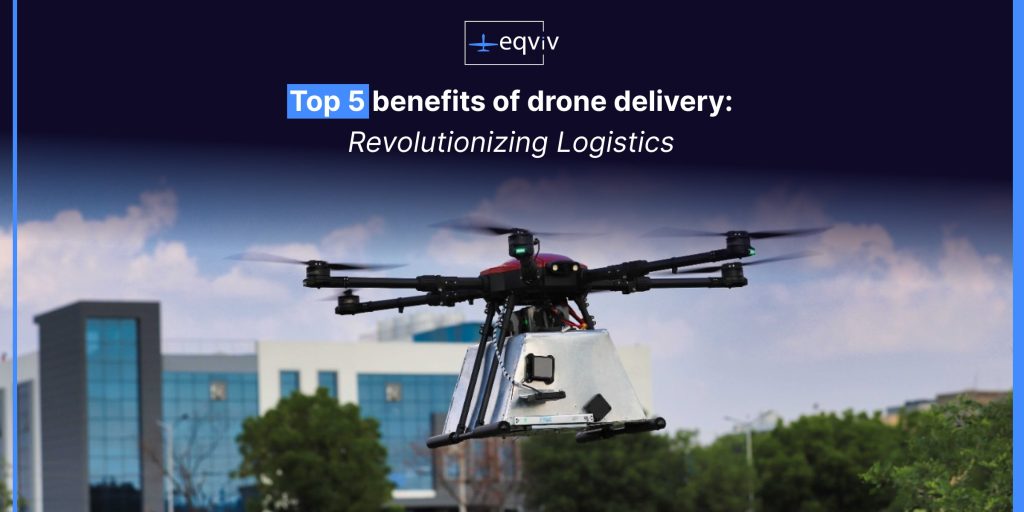The Role of Drone Businesses in Employment Generation and Economic Growth in India

India’s economic landscape is evolving rapidly, fueled by technological innovations across various sectors. Among these, the emergence of drone businesses stands out as a significant contributor to economic growth and employment generation. As the government pushes for modernization and digital transformation, drones are becoming an integral part of several industries, ranging from agriculture and healthcare to logistics and disaster management. This blog explores how drone businesses are driving economic growth in India and their critical role in employment generation.
The Rise of Drone Technology in India
Policy Support and Market Growth
The Indian government has recognized the potential of drones and has been proactive in creating a favorable policy environment. The introduction of the Drone Rules 2021 marked a pivotal moment, simplifying the regulatory framework and encouraging innovation. These rules have facilitated the commercial use of drones, opening up new avenues for businesses and entrepreneurs.
Market Potential
According to a report by PwC India, the Indian drone market is expected to grow to $885 million by 2021 and further expand to $1.81 billion by 2026. This growth is driven by the increasing adoption of drones in various sectors, particularly in agriculture, where they are used for crop monitoring, spraying pesticides, and improving yield through precision farming.
Employment Generation Through Drone Businesses
Direct Employment
The drone industry directly generates employment through manufacturing, research and development, operation, and maintenance of drones. The demand for skilled professionals such as drone pilots, engineers, and data analysts is on the rise. Training institutes and certification programs are emerging to meet this demand, providing job opportunities for young graduates and professionals looking to upskill.
Indirect Employment
The ripple effect of the drone industry extends to indirect employment. Sectors that integrate drones into their operations, such as agriculture, logistics, and infrastructure, also see a surge in job creation. For instance, agricultural workers are trained to operate drones, while logistics companies hire additional staff to manage drone deliveries and related logistics.
Sector-Wise Impact of Drones on Employment
Agriculture
Agriculture is the backbone of the Indian economy, employing around 58% of the workforce. Drones are revolutionizing this sector by enabling precision farming, reducing labor costs, and increasing productivity. According to the Indian Council of Agricultural Research (ICAR), drone technology can help save up to 20% of the pesticides used, thereby reducing costs and increasing profitability for farmers. The increased efficiency and productivity lead to the creation of new job roles such as drone operators, maintenance technicians, and data analysts.
Infrastructure and Construction
The infrastructure and construction sectors are major contributors to employment in India. Drones are being used for surveying, monitoring construction sites, and ensuring quality control. The adoption of drones in these sectors reduces the time and cost involved in manual surveys and inspections. According to a report by the Construction Industry Development Council (CIDC), the use of drones can reduce project completion time by up to 30%. This efficiency leads to the creation of jobs in drone operation, data processing, and project management.
Logistics and Delivery
The logistics and delivery sector is undergoing a transformation with the advent of drone technology. Companies like Zomato and Swiggy are experimenting with drone deliveries to improve efficiency and reduce delivery times. The expansion of drone deliveries creates jobs in drone piloting, fleet management, and customer service. According to a report by the Federation of Indian Chambers of Commerce & Industry (FICCI), the logistics sector could see an increase in employment by 20% due to the integration of drone technology.
Disaster Management
Drones play a crucial role in disaster management by providing real-time data, conducting search and rescue operations, and delivering essential supplies to affected areas. The National Disaster Management Authority (NDMA) has highlighted the importance of drones in improving the efficiency of disaster response operations. This integration creates jobs in drone operation, data analysis, and logistics, enhancing the overall capacity of disaster management teams.
The Skill Development Imperative
Training and Certification
To harness the full potential of drones, there is a pressing need for skilled professionals. Several institutes and organizations are offering training and certification programs in drone technology. The Directorate General of Civil Aviation (DGCA) has authorized training organizations to provide Remote Pilot Training, which includes both theoretical and practical components. These programs are essential for creating a pool of qualified professionals ready to take on roles in the burgeoning drone industry.
Government Initiatives
The Indian government is also playing a crucial role in promoting skill development. The Skill India Mission, launched by the Ministry of Skill Development and Entrepreneurship, aims to train over 400 million people in various skills by 2022. The inclusion of drone technology in this mission is a significant step towards preparing the workforce for the future. Additionally, schemes like the Pradhan Mantri Kaushal Vikas Yojana (PMKVY) are offering courses in drone technology, further boosting employment opportunities.
Challenges and Opportunities
Regulatory Challenges
Despite the favorable policies, there are still regulatory challenges that need to be addressed. Issues such as airspace management, privacy concerns, and security threats need to be carefully managed to ensure the safe and effective use of drones. The government and industry stakeholders must work together to create a robust regulatory framework that balances innovation with safety and security.
Technological Advancements
Technological advancements in drone technology present both challenges and opportunities. The rapid pace of innovation requires continuous upskilling and adaptation. However, these advancements also open up new possibilities for the use of drones in various sectors. For instance, the development of AI and machine learning algorithms enhances the capabilities of drones in data analysis and decision-making, creating additional job roles in these advanced technologies.
Investment and Funding
Investment in the drone sector is crucial for its growth and development. The government has introduced several initiatives to attract investment, such as the Drone Shakti scheme, which aims to promote the indigenous development and production of drones. Additionally, venture capital firms and angel investors are showing interest in drone startups, providing the necessary financial support to drive innovation and expansion.
Case Studies: Success Stories of Drone Businesses in India
Garuda Aerospace
Garuda Aerospace, a Chennai-based startup, is making significant strides in the drone industry. The company provides drone solutions for agriculture, infrastructure, and surveillance. With over 300 drones and a team of skilled professionals, Garuda Aerospace is creating numerous employment opportunities. The company’s focus on innovation and quality has earned it several accolades, including recognition from the Ministry of Civil Aviation.
Skylark Drones
Skylark Drones, headquartered in Bengaluru, offers drone-based solutions for mapping, surveying, and inspection. The company’s services are used in sectors such as mining, construction, and agriculture. Skylark Drones has trained over 500 drone pilots and created numerous job opportunities through its operations and training programs. The company’s success highlights the potential of drone businesses in driving economic growth and employment generation.
Asteria Aerospace
Asteria Aerospace, based in Bengaluru, specializes in providing end-to-end drone solutions for defense, enterprise, and industrial applications. The company’s innovative approach and commitment to quality have positioned it as a leader in the drone industry. Asteria Aerospace has created several jobs in research and development, manufacturing, and operations, contributing significantly to employment generation in the sector.
The Future of Drone Businesses in India
Expansion into New Sectors
The potential applications of drone technology are vast, and there is significant scope for expansion into new sectors. Industries such as healthcare, telecommunications, and environmental monitoring are beginning to explore the use of drones. For instance, drones can be used for delivering medical supplies to remote areas, conducting environmental surveys, and inspecting telecommunications infrastructure. The expansion into these new sectors will create additional job opportunities and drive economic growth.
Enhancing Public Services
The use of drones in public services is also gaining traction. Law enforcement agencies are using drones for surveillance and crime prevention, while municipal bodies are employing drones for waste management and monitoring urban development. The integration of drones into public services improves efficiency and effectiveness, leading to better service delivery and the creation of new job roles in the public sector.
Global Competitiveness
As India continues to develop its drone industry, it has the potential to become a global leader in this technology. The combination of a favorable regulatory environment, a skilled workforce, and continuous innovation positions India competitively on the global stage. By focusing on quality, safety, and advanced technology, Indian drone businesses can tap into international markets, further driving economic growth and employment generation.
Conclusion
The rise of drone businesses in India is a testament to the country’s commitment to technological advancement and economic development. The integration of drone technology across various sectors is driving efficiency, reducing costs, and creating numerous employment opportunities. As the industry continues to grow, it is essential to address regulatory challenges, invest in skill development, and promote innovation. With the right support and collaboration between the government, industry, and academia, the drone sector has the potential to transform India’s economic landscape and create a brighter future for millions of Indians.
The role of drone businesses in employment generation cannot be overstated. By creating direct and indirect job opportunities, enhancing productivity, and fostering innovation, the drone industry is poised to become a key driver of economic growth in India. As we look to the future, it is clear that the sky is not the limit, but rather the beginning of new possibilities for India’s economy and its workforce.

